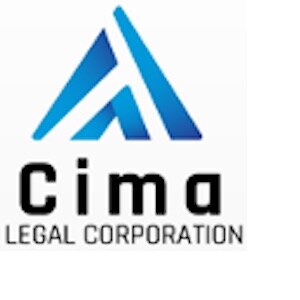Best Nonprofit & Charitable Organizations Lawyers in Ecuador
Share your needs with us, get contacted by law firms.
Free. Takes 2 min.
Or refine your search by selecting a city:
List of the best lawyers in Ecuador
About Nonprofit & Charitable Organizations Law in Ecuador
In Ecuador, nonprofit and charitable organizations are primarily guided by regulations set forth in the Civil Code and various special laws, including the Organic Law of Transparency and Access to Public Information. These organizations, known as "Organizaciones sin Fines de Lucro" (OSFL), are established to pursue social, educational, cultural, and philanthropic goals. OSFLs must be formally registered with the Ministry of Economic and Social Inclusion (MIES) and comply with relevant tax laws and reporting requirements. Understanding the legal framework for these entities is crucial for ensuring compliance and achieving their intended purpose effectively.
Why You May Need a Lawyer
There are numerous scenarios where legal assistance might be needed regarding nonprofit and charitable organizations in Ecuador:
- Forming a New Nonprofit: Navigating the registration and legal establishment processes can be complex, requiring expert legal guidance.
- Compliance Issues: Ensuring compliance with financial reporting, taxation, and governance can often require professional legal intervention.
- Internal Governance Disputes: Conflicts among board members or between management and the board may need mediation facilitated by a lawyer.
- Re-structuring or Dissolution: Legal procedures involved in altering the structure or closing a nonprofit can benefit from legal oversight.
- Taxation Matters: Legal counsel may be needed to manage issues related to tax-exempt status and other fiscal obligations.
Local Laws Overview
The establishment and operation of nonprofit organizations in Ecuador is governed by specific regulations. Notable aspects include:
- Registration: Nonprofits must register with MIES and comply with requirements concerning their statutes and organizational purpose.
- Tax Exemption and Liability: Certain nonprofits are eligible for tax exemptions but must adhere to strict usage and reporting standards.
- Corporate Governance: Regulations govern the internal structure, including the roles and responsibilities of board members and the need for compliance with statutory meetings and documentation.
- Reporting Obligations: Nonprofits are required to submit annual reports that detail their financial status and activities to MIES.
- Transparency and Accountability: The Organic Law of Transparency obliges nonprofits to make certain information publicly accessible.
Frequently Asked Questions
What is the procedure to establish a nonprofit organization in Ecuador?
To establish a nonprofit, you must draft and submit your statutes, a list of board members, and other required documents to MIES. Upon their review and approval, your organization will be formally recognized.
Can a nonprofit generate revenue in Ecuador?
Yes, nonprofits can generate revenue, but it must be reinvested into the organization's social objectives. Profits cannot be distributed among members.
Are there any restrictions on the activities that nonprofits can engage in?
Nonprofits are generally restricted to activities that align with their stated purpose. Engaging in activities outside their scope could result in penalties or loss of nonprofit status.
Do nonprofits in Ecuador have to pay taxes?
While many nonprofits are eligible for tax exemptions, they must apply and qualify for this status. They must still comply with reporting and accountability standards.
What happens if a nonprofit fails to file mandatory reports?
Failure to file mandatory reports can lead to fines, investigations, or even the dissolution of the organization by the authorities.
How are internal disputes within a nonprofit resolved?
Internal disputes are typically resolved through mediation or arbitration. Legal intervention may be necessary if disputes cannot be amicably settled.
Are foreign nonprofits allowed to operate in Ecuador?
Yes, foreign nonprofits can operate in Ecuador but must adhere to local registration and regulatory requirements.
How can a nonprofit maintain transparency and accountability?
Nonprofits should establish clear governance policies, maintain accurate records, and be transparent about their activities and financial matters.
What are the consequences of mismanagement of nonprofit funds?
Mismanagement of funds can lead to legal proceedings, loss of tax-exempt status, penalties, or criminal charges against board members or management.
Is it possible to convert a nonprofit into a for-profit entity?
No, converting a nonprofit into a for-profit entity is not allowed under Ecuadorian law. A new for-profit entity must be established separately.
Additional Resources
Here are some resources and organizations related to nonprofit and charitable organizations in Ecuador:
- Ministry of Economic and Social Inclusion (MIES): The main regulatory body for nonprofits.
- Tax Authority (SRI): Provides guidance on tax-related issues for nonprofits.
- Chamber of Social and Solidarity Economy: Offers support and resources for nonprofit entities.
Next Steps
If you require legal assistance in matters pertaining to nonprofit and charitable organizations in Ecuador, consider the following steps:
- Legal Consultation: Schedule a consultation with a lawyer specializing in nonprofit law to assess your needs.
- Documentation: Gather all relevant documents, including your organization's statutes, financial records, and correspondence with regulatory bodies.
- Legal Representation: Engage a lawyer for ongoing legal advice or representation if facing complex legal challenges or disputes.
- Continuous Education: Stay informed about changes in laws or regulations affecting nonprofits to ensure compliance.
Lawzana helps you find the best lawyers and law firms in Ecuador through a curated and pre-screened list of qualified legal professionals. Our platform offers rankings and detailed profiles of attorneys and law firms, allowing you to compare based on practice areas, including Nonprofit & Charitable Organizations, experience, and client feedback.
Each profile includes a description of the firm's areas of practice, client reviews, team members and partners, year of establishment, spoken languages, office locations, contact information, social media presence, and any published articles or resources. Most firms on our platform speak English and are experienced in both local and international legal matters.
Get a quote from top-rated law firms in Ecuador — quickly, securely, and without unnecessary hassle.
Disclaimer:
The information provided on this page is for general informational purposes only and does not constitute legal advice. While we strive to ensure the accuracy and relevance of the content, legal information may change over time, and interpretations of the law can vary. You should always consult with a qualified legal professional for advice specific to your situation.
We disclaim all liability for actions taken or not taken based on the content of this page. If you believe any information is incorrect or outdated, please contact us, and we will review and update it where appropriate.
Browse nonprofit & charitable organizations law firms by city in Ecuador
Refine your search by selecting a city.

















